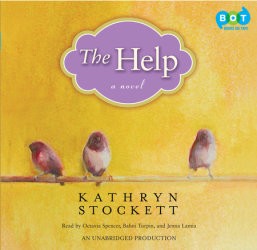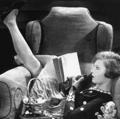MaidMerry reviewed The Help by Kathryn Stockett
Review of 'The Help' on 'Goodreads'
4 stars
This is one of the better books I've read in some time. The characters are compelling, the storyline well-developed and suspenseful, and the message still relevant.
Some people take issue with the book, and I have to agree that their concerns have merit. The people of colour are somewhat stereotyped. So are many of the white people, such as Hilly, if it comes down to it, but it's more problematic when victims of racism are stereotyped.
Also, some people raise concerns with what they see as racist attitudes and statements on the part of the author. This may be true, but it's important to remember that one can't always attribute the attitudes of the narrators to those of the author. Narrative voice does not equal author's voice.
For example, when Skeeter calls both black girls she plays with, "Mary," because she can't tell them apart--does this mean that the author …
This is one of the better books I've read in some time. The characters are compelling, the storyline well-developed and suspenseful, and the message still relevant.
Some people take issue with the book, and I have to agree that their concerns have merit. The people of colour are somewhat stereotyped. So are many of the white people, such as Hilly, if it comes down to it, but it's more problematic when victims of racism are stereotyped.
Also, some people raise concerns with what they see as racist attitudes and statements on the part of the author. This may be true, but it's important to remember that one can't always attribute the attitudes of the narrators to those of the author. Narrative voice does not equal author's voice.
For example, when Skeeter calls both black girls she plays with, "Mary," because she can't tell them apart--does this mean that the author has racist attitudes, or that she has drawn Skeeter in a believable and realistic way for someone who grew up in Mississippi in the 1940s and 50s? Yes, Skeeter becomes a champion of the maids, but would it really be likely that she would spring, fully formed in enlightenment, from her father's head and never reflect the racism she is taught, when she is a child--and even, to some degree, as an adult, even if she's better than the others to start with and learns more as the novel progresses? I doubt it.
Another criticism leveled at this book is that Skeeter becomes a sort of white saviour. If this were a big part of the book, it would be a fault I'd have difficulty overlooking. I dislike when stories that are intended to be anti-racist put the white person at the centre, teaching the people of colour how to save themselves. (Think "Dances with Wolves" or "Avatar" as examples, albeit with Indigenous people.) I think "The Help" is somewhat less guilty of this, although I can understand why some people might see it as a problem in this book. However, it is a story with multiple narrators--two of them maids who are black, and one of them the white woman, Skeeter. And, throughout, Skeeter is shown to be the one taking the least risk, and this becomes increasingly clear to her as the novel progresses. Also, if I remember correctly, the editor says that the stories written by Aibileen need the least work to make them publishable. So, even there, Aibileen is shown to be more skilled than Skeeter. Thus, while there might be a bit of white saviour syndrome happening here, I think the author does attempt to portray the maids as the real heroes, with Skeeter being merely the vehicle for them to express themselves.
Anyway, I think this book is well worth a read, while bearing in mind the criticisms.


